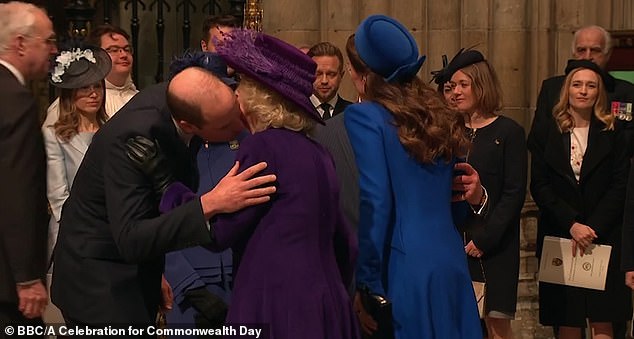The BBC finds itself embroiled in a fresh controversy as Amol Rajan takes the helm to write and present a two-part series focusing on younger royals, despite his past criticism of the monarchy as absurd.
The documentary titled “The Princes and the Press” has faced a barrage of criticism, with accusations of bias favoring the Duke and Duchess of Sussex while seemingly pitting them against Prince Charles and the Duke of Cambridge.
One notable moment in the program that drew ire was the final interview featuring Meghan Markle‘s British lawyer, juxtaposed with a written statement from the royal family.
Jenny Afia, speaking on behalf of the Duchess, vehemently denied allegations of her being difficult and demanding, dismissing stories about her treatment of staff as false.
Royal journalist Omid Scobie added fuel to the fire by alleging that members of royal households had actively worked against Meghan and Harry during their time in the UK.
Angela Levin, who penned a biography of Prince Harry, criticized the documentary’s bias, highlighting the portrayal of an anti-William, anti-Charles stance while painting a pro-Meghan and Harry narrative.
The lack of a balanced perspective was a point of contention, with Levin pointing out the absence of a rebuttal from the opposing side, a violation of BBC guidelines.
In response, the BBC reached out to Buckingham Palace, Clarence House, and Kensington Palace for comments.
A joint statement was issued expressing disappointment in the media’s tendency to give credibility to baseless claims from unnamed sources.
Despite the BBC’s assertion that the program aims to delve into royal journalism practices and features a diverse range of industry professionals, concerns over fairness and accuracy persist.
The timing of the documentary’s release, particularly amidst the recent loss of the Queen’s husband and her own health struggles, has been deemed insensitive and ill-timed.
Looking ahead to the second part of the series, set to air next Monday, expectations are high for further revelations that could deepen the existing rift between the princes, the BBC, and Buckingham Palace.
Royal expert Richard Fitzwilliams anticipates heightened tensions following the broadcast, especially concerning the coverage of the brothers’ strained relationship and its global impact.
As the controversy unfolds, reports suggest that members of the royal family are contemplating a boycott of the BBC in response to the perceived imbalance and potential damage to their reputation.
With ongoing discussions around the handling of royal narratives and the media’s role in shaping public perception, the fallout from this documentary may have far-reaching implications for all parties involved.

